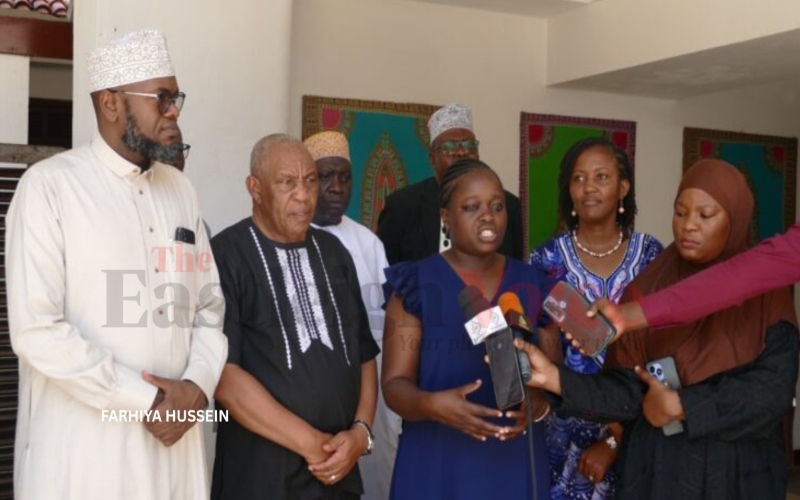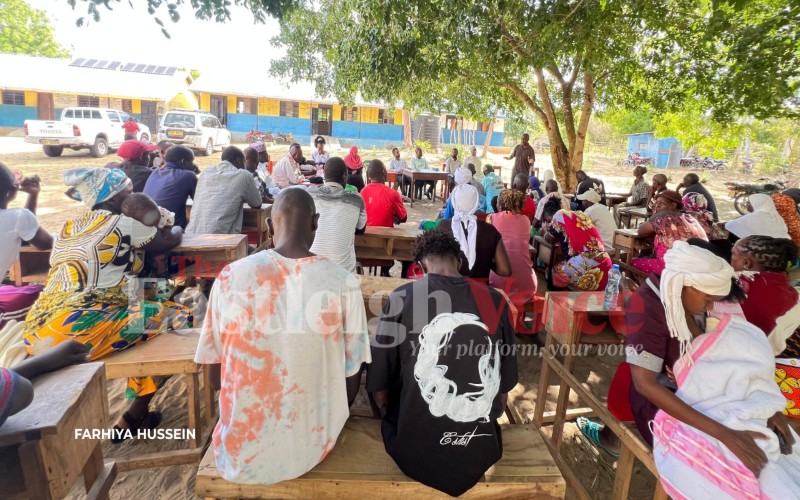NACADA, clergy join forces to confront drug crisis at the Coast

Sheikh Abu Qatada, the Chairperson of the Pwani People’s Religious Leaders Forum, pledged the clergy’s support, saying that mosques, churches, and temples would use the pulpit to amplify the message against substance abuse.
The National Authority for the Campaign Against Alcohol and Drug Abuse (NACADA) has joined hands with religious leaders in the Coast region to step up the fight against escalating cases of drug and substance abuse.
Addressing journalists in Mombasa, NACADA’s Director of Public Education and Advocacy, Dr Yvonne Olando, stressed the urgent need for a joint strategy to protect young people from the grip of narcotics.
More To Read
- Record cocaine seizure in Haitian waters underlines country’s ‘pivotal’ trafficking role
- Mutua sounds alarm as drug abuse blocks coast youth from lucrative jobs abroad
- SUPKEM Chair Hassan Ole Naado rejects calls to resign, defends tenure
- Kenya Airways staff jailed for 25 years for trafficking heroin
- Six Iranians detained for 21 more days as probe into Sh8.2 billion meth seizure deepens
- Busia destroys Sh21.9 million worth of heroin, bhang in anti-drug operation
“Drug use has been on the rise in this region, particularly heroin and bhang, which are steadily penetrating through our borders. We require strong collaboration from faith leaders to ensure our youth are shielded from the devastating effects of drugs,” she said.
Dr Olando noted that the authority has intensified its awareness campaigns countrywide, but emphasised that long-term solutions would only be possible through collective community action.
Sheikh Abu Qatada, the Chairperson of the Pwani People’s Religious Leaders Forum, pledged the clergy’s support, saying that mosques, churches, and temples would use the pulpit to amplify the message against substance abuse.
“As spiritual leaders, we must stand together with NACADA to educate our people on the dangers of drugs,” he said.
Christian clergy, Bishop Paul Mwaura, echoed the same concerns, describing the initiative as a chance to steer congregations towards healthier choices. “Workshops and awareness drives will allow us to teach our people the difference between what is harmful and what is beneficial,” he said.
Mombasa County SUPKEM Chairman, Ali Akbar, urged NACADA to take tougher measures, while also highlighting the importance of early prevention through public sensitisation.
“Let us not wait for a full-blown crisis. This matter must be tackled before it spirals further out of control,” he warned.
Akbar further appealed to the Ministry of Education to actively incorporate drug awareness programmes into schools, insisting that young learners must be prioritised in the campaign against substance abuse.
Parents in the region also expressed alarm over the rising trend of drug use. Husna Ahmad said the battle cannot be left to the government alone. “Many children are being lured into drugs right in our neighbourhoods. As parents, we must also take responsibility to guide our children and monitor their movements,” she said.
Her sentiments were echoed by Daniel Mwangi, a father who noted that the fight requires vigilance at home as much as it does in schools and religious institutions.
“We talk a lot about campaigns and workshops, but what happens inside our households matters most. I believe stronger parental guidance is key if we are to save the next generation,” he said.
With the Coast continuing to be one of the country’s hotspots for narcotics, NACADA and the clergy hope that bringing parents, schools, and the wider community on board will help shield young people from the growing menace.
Top Stories Today











































